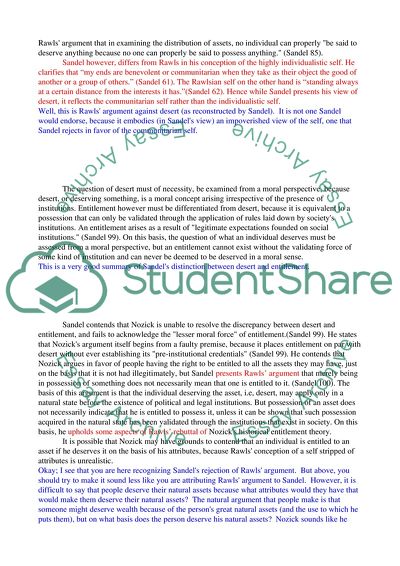Cite this document
(Analysis of Michael Sandel's Liberalism and Theory of Justice and Assignment, n.d.)
Analysis of Michael Sandel's Liberalism and Theory of Justice and Assignment. https://studentshare.org/politics/1718398-michael-sandel-liberalism-and-the-theory-of-justice
Analysis of Michael Sandel's Liberalism and Theory of Justice and Assignment. https://studentshare.org/politics/1718398-michael-sandel-liberalism-and-the-theory-of-justice
(Analysis of Michael Sandel'S Liberalism and Theory of Justice and Assignment)
Analysis of Michael Sandel'S Liberalism and Theory of Justice and Assignment. https://studentshare.org/politics/1718398-michael-sandel-liberalism-and-the-theory-of-justice.
Analysis of Michael Sandel'S Liberalism and Theory of Justice and Assignment. https://studentshare.org/politics/1718398-michael-sandel-liberalism-and-the-theory-of-justice.
“Analysis of Michael Sandel'S Liberalism and Theory of Justice and Assignment”. https://studentshare.org/politics/1718398-michael-sandel-liberalism-and-the-theory-of-justice.


